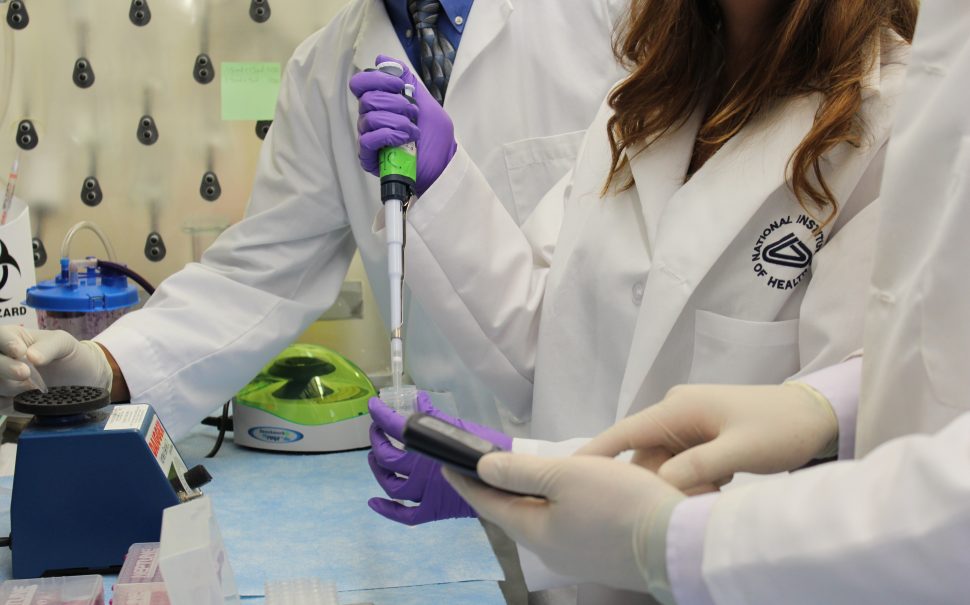The Conservative government failed to make polycystic ovarian syndrome, a condition that affects one in ten women in the UK, a women’s healthcare priority. But what will the new Labour government do?
Although PCOS affects approximately 15% of women of reproductive age in the UK according to the London Endocrine Centre, it is difficult to obtain treatment, and the Labour government has yet to release its list of women’s health priorities.
The Women’s Healthcare priorities for 2024 released under the previous Conservative government focused on research funding and updated care for heavy menstrual cycles, endometriosis, menopause, maternity care, and care for domestic and sexual abuse victims, but not PCOS.
Consultant gynecologist and self-specialist in reproductive medicine at Epsom and St. Helier Hospital Dr Bassel Wattar said: “Compared to other conditions like endometriosis and menopause, the voices have not been very well heard.”
He added: “I strongly believe that we need multidisciplinary PCOS-specific clinics in every region. These clinics should have a gynecologist, endocrinologist, and dermatologist.”
Dr Wattar also emphasized the lack of PCOS education in medicine and the need to rectify this, in addition to spreading awareness about early and simple intervention in the community.
A multisystem hormone disorder, PCOS is a genetic condition with no known cause or cure, and often goes undiagnosed.
Symptoms include irregular menstrual cycles (or lack of periods), oily skin or acne, infertility, excessive hair growth, and weight gain, which can lead to the development of type 2 diabetes, high cholesterol, and other serious health issues.
Polycystic ovaries are defined as containing 20 or more follicles in at least one ovary by the National Institute for Health and Care Excellence (NICE), and not solely by the presence of ovarian cysts.
A study conducted by Fertility Family in 2023 found that 68% of respondents waited over a year for their PCOS diagnosis.
This coincides with a study conducted by Dr Wattar and others which examined the research and healthcare priorities for women with PCOS in the UK utilising the National Health Service.
With over 600 participants, this study found that 90% of participants felt that NHS services are not inclusive or accommodating to the varied needs of women with PCOS.
The study also found that 80% of participants felt it is difficult to access reliable information from NHS sources on self‐management of PCOS.
A petition for parliament to increase research funding for endometriosis and PCOS took place in 2021 and gained 101,910 signatures.
Dr Wattar said that his group of leading researchers has submitted a bid for funding from NICE and hopes to research the best lifestyle interventions for PCOS.
Doctors often perform ultrasounds and test luteinizing hormone and follicle-stimulating hormone, prolactin, thyroid-stimulating hormone, and measure total testosterone and androgen index to diagnose PCOS according to NICE.
PCOS dietician and spokesperson for MyOva Jodie Relf said: “We know that PCOS increases the prevalence of anxiety and depression, and the impact that it has on women’s confidence because of the symptoms and how they kind of affect physical appearance – but also that kind of chronic fatigue, the brain fog. There’s just so much more to it.
“The risk for diabetes, cardiovascular disease, it’s so much more than a fertility issue.”
She added: “I’d love to see this information reaching more women, and women being empowered to shut down the conversation of ‘Just go in and lose weight’, or ‘Here’s metformin’, or ‘Here’s the pill to have children’.
“Seeing GPs working with psychologists and dieticians and having an integrative care plan would be amazing.”
Relf said: “When you look at how damaging it is to women and the impact it has on their quality of life, it just blows my mind that there isn’t more support.”
Cysters, a charity based in Birmingham, combats misinformation about reproductive health issues and promotes “cysterhood”, creating communities and safe spaces online and in person for those struggling with their reproductive health.
Cysters founder Neelam Heera said that when meeting in digital spaces on social media platforms, they are often shadow-banned because their content is misinterpreted as sexualised.
She highlighted that Cysters is most often shadow-banned online when discussing medical racism.
Similarly, Heera stressed the lack of support for people of colour with PCOS.
She said: “I have seen for many years, it’s always quoted that people of colour struggle more with PCOS, but what I failed to understand is why we’re not looking into the reason as to why.
“We partnered with the University of Birmingham on a really big research study to get some of these answers and that research is still ongoing, but I would love to see more research into the nuances of being a person of colour having PCOS.”
Heera added that as PCOS is seen as a fertility issue, it can elicit different responses from people of colour with PCOS.
She said: “When you’re told you’ve got something that affects fertility, that’s because as a person of color, we place fertility on a pedestal, that becomes another area that we have to deal with sort of emotionally, which I don’t think is very much understood by many healthcare professionals.
“I think there needs to be a cultural understanding of what PCOS is and how that can look in different households.”
While PCOS treatment plans are individualized, common forms of treatment often include medications like a contraceptive pill and metformin, dietary or exercise changes, and a surgical procedure known as laparoscopic ovarian drilling, according to the NHS.
The study by Dr Wattar and others also revealed that more than 80% of participants identified six high-priority issues with PCOS diagnosis and treatment including reducing the waiting time to see a PCOS specialist, improving access to treatment of menstrual disorders, and improving access to a rapid and reliable PCOS diagnosis.
Due to issues with accessing PCOS treatment through the NHS, many women have turned to alternative methods to stabilise hormone levels and maintain their health, including taking supplements.
Founded in 2016, MyOva is a supplement company that provides expert-developed supplements comprised of vitamins, minerals, and nutrients.
Leila Martyn founded MyOva in 2016 after her battles with PCOS and fertility issues and now has sold over 100,000 bottles of their bestselling product, Myoplus.
Relf said: “I think that using natural supplements is great.
“We know that they have less or potentially no side effects in comparison to using medication, and they can be a very beneficial part of managing the condition.”
She added: “They’re proven to be very effective.”
Like endometriosis and other gynaecological issues, PCOS needs to be further researched and treatment techniques improved.
The Royal College of Obstetricians and Gynaecologists is already calling for Labour to prioritise improving women’s healthcare in the UK, alongside others.
Feature image credit: NIH Clinical Center, Flickr Creative Commons License





